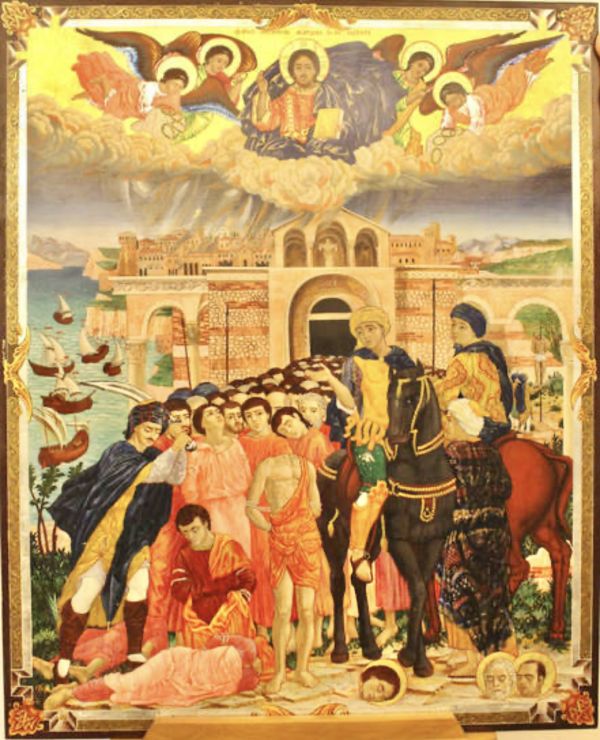Today's Gospel passage speaks of persecution and hatred towards the witnesses of Jesus.
The Poor Man of Assisi, having known Christ, well knew that following in His footsteps would also entail insults and persecution, starting with his family.
In fact, the people of Assisi and his father, a shrewd merchant, could not bear his radical change, and thought him mad.
But Francis, Herald of Christ, did not let himself be intimidated, guided by divine Wisdom, which suggests to those who welcome it every response appropriate to the moment.
The Franciscan Sources, a place of special evangelical training, narrate:
"One day, inflamed with enthusiasm, the Saint left the cave and set out towards Assisi, lively, quick-witted and joyful.
Armed with confidence in Christ and inflamed with heavenly love, he reproached himself for cowardice and vain trepidation, and boldly decided to expose himself to the hands and blows of his persecutors.
At the first sight of him, those who knew him as he was before, began to insult him, shouting that he was a madman and a fool, throwing mud and stones at him.
Seeing him so changed, exhausted by penances, they attributed his change to exhaustion and dementia.
But the Knight of Christ passed through that storm without paying any attention to it, not allowing himself to be struck and agitated by the insults, giving thanks to God instead.
News of what was happening spread through the squares and streets of the city, until it came to the ears of his father.
Hearing how they were mistreating him, he immediately went out to get him, intending not to free him but to end it.
Out of his mind, he pounced on him like a wolf on a sheep, and staring at him with grim eyes and a face contracted in fury, he seized him and dragged him home.
There he locked him up in a dark cubbyhole for several days, doing everything, with words and blows, to bring him back to worldly vanity" (FF 1417).
But "Francis did not let himself be moved neither by words, nor by chains, nor by beatings. He endured everything with patience, indeed becoming more agile and stronger in following his ideal" (FF 1418).
"Now before all these things they will lay their hands on you and persecute you by delivering you to synagogues and prisons" (Lk 21:12).
"And you will be hated by all because of my name" (Lk 21:17).
Wednesday 34th wk in O.T. (Lk 21,12-19)












